- Home
- Karen Kingsbury
The Bridge Page 3
The Bridge Read online
Page 3
As the video wound down and Sam curled up on the floor beside her, as her tears slid down her cheeks the way they did every time she watched the film, Molly couldn’t help but think the one thing she would always think this time of year.
She should’ve said something.
C HA P T E R T W O
Charlie Barton sank into the worn refinished leather sofa and looked around the empty walls of The Bridge. Even stripped bare, the place was home. But for how much longer? He closed his eyes and tried to still his trembling hands, tried to find a reason to believe again.
Please, God . . . show me the way. I’m out of answers.
He waited, but there was no response, no whispered words of hope or gentle reminders or inspiring Scripture. Nothing. Are You there, God? Are You really there? With all of his strength, he fought the ocean of tears rising up inside his soul. He was out of money, and the latest loan hadn’t come through. He couldn’t buy books to stock his store without at least a line of credit. And no books meant no store.
Another wave of despair washed up against the shore of his soul. All he could see was the way Donna had looked at him when he left home an hour ago—like even she’d lost faith in him.
After thirty years in downtown Franklin, Charlie understood the gravity of the situation. Like so many bookstores across the country, his was about to become a casualty. Not because of e-readers—Charlie had enough customers who wanted a real book in their hands. But because of something totally out of his control.
The hundred-year flood.
Charlie opened his eyes and leaned forward, digging his elbows into his knees and placing his hands over his weathered face. The floodwaters had come swift and relentless, nearly twenty inches of rain in two days. He hadn’t packed up the books. There hadn’t been time. If he’d known how bad it would get, he might’ve come here anyway, risking his life if that’s what it took. By the time he thought about clearing out the store, he would’ve needed a boat to get to The Bridge.
The water had broken through the windows and knocked over shelves, taking even the books that might’ve been out of reach of the rising flood. Every book. Every single book was either swept away or left in the corners of the store, mushy piles of pulp. Only the furniture remained, and it was too damaged to save. His insurance policy on the store’s contents didn’t cover a tenth of what he’d invested in books. No, the flood left nothing. With a clean sweep, it removed all that Charlie Barton had spent his life working for, everything that had mattered to him.
Everything but his faith in God and his lovely Donna.
He looked up and squinted through the fading light out the storefront window. What would Franklin be without a bookstore? Without a place where people could come to learn about history and explorations, fiction and political figures? Where would they go to talk about their ideas and experience the feel of a book in their hands? The weight of the binding and smell of the ink, the feel of the paper between their fingers and the sound of turning pages.
A real book.
Charlie gritted his teeth and worked the muscles in his jaw. This wasn’t the end. He closed his eyes again. God wouldn’t have brought him this far to see him fail, right? Certainly not. He ran through the options one more time, and his burst of confidence dimmed. He hadn’t told Donna about the loan.
The bells on the front door jingled and he looked up. The sign out front said he was reopening on December 8—not ideal but still well before Christmas. The bells on the front door and the worn sofa were the only purchases he’d made so far. He watched as the door opened and Donna walked in. At fifty-six, she was still pretty, still petite, with a girlish face that he loved more with each passing year.
“Charlie.” She came to him, her expression weary but patient. “How long are you going to sit here?”
“Until they make me leave.” His smile felt heavy, and his eyes blurred, the unshed tears finding a way. “You didn’t have to come.”
“I did.” She helped him to his feet and took him in her arms. “The bank called.”
His heart sank. He’d wanted to tell her himself. He drew back and searched her eyes. “What’d they say?”
“The line of credit was denied.”
Charlie lowered his gaze to his old brown loafers, the ones he’d worn to The Bridge every day for five years. The business had never been lucrative. He and Donna had sacrificed to keep the place, but neither of them would’ve changed a thing. The Bridge gave them a purpose. He was quiet for a long while.
“Donna . . .” His voice cracked. He looked at her, his heart aching with sadness. “It was worth it, right?”
“What?” She had hold of his hands now, her eyes kinder than he deserved.
“The Bridge, the bookstore . . . all the years.” He touched her hair, her cheek. “You never had nice things. We never traveled.”
She looked at him for a long time and then put her hands on his shoulders. “Our time here, it was never about the money. It was about the people.” She pointed out the front window. “There’s not a person in Franklin who hasn’t been touched by your books and your kindness, Charlie Barton.”
He let the words soak in and then pulled her close once more. “I don’t deserve you.” They stayed that way for half a minute, rocking slightly to the sound of their beating hearts and the passing cars and pedestrians outside. Finally, he took a step back and shrugged. “What should we do?”
For the first time since she walked into the store, her face clouded. “That’s just it, Charlie.” She crossed her arms and turned her back to him, her eyes on the empty spaces. It took her nearly a minute to face him again. “No matter how many people you’ve touched, they won’t pay the bills. Your customers can’t buy books we don’t have.”
He waited, hoping she had something else, some way out that he’d missed.
Instead she looked down for a long moment. When she lifted her eyes to his, there was a resolution in her face he’d never seen before. “It’s time, Charlie. You had a good run. Three decades.” She shook her head. “But no more. You need to let it go.”
Panic crowded in around him and put its cold fingers against his throat. “I’m a bookseller, Donna.” His voice was pinched, his heart pounding. “I don’t know what else to do.”
She shook her head, glancing about as if the answer might be somewhere on the barren walls. “You know retail.” Pain colored her eyes. “Costco or one of the supermarkets. Someone has to be hiring.”
Charlie shuddered at the picture. He was almost sixty, his hair whiter than the snow outside. Pushing carts at Costco? Bagging groceries at Kroger? How could that be his swan song when he had planned to work at The Bridge until God took him home? He gave her a weak smile. “I’ll figure something out.”
“You have to close the store. We can’t afford the lease.” Her eyebrows raised, she studied him, searching his intentions. “You know that. Right?”
He couldn’t have felt more pressure if the roof collapsed and pinned him to the floor. Sweat beaded on his forehead, and he wiped it with the back of his hands. He felt a hundred years old. “I have to do something. I know that.”
A long pause followed while she watched him. “I’m going home.” She held her hand out. “Come with me?”
“Not yet.” He shook his head, and again panic breathed its icy breath down his back. The store was his home, his family. Leaving it now without an answer was like putting his mother out in the cold and wishing her the best of luck. He couldn’t do it, couldn’t promise anything other than the obvious. “I have to think.”
A tired sigh sounded in her throat and she put her hand alongside his face. “I love you, Charlie. It’s not your fault. Bookstores everywhere are dealing with this.” She smiled at him. “I believe in you.”
“I know.” He gave her a brave smile and a look that said he’d be fine, that she could go and he would find the answers somehow. The truth was, Donna didn’t understand completely. This wasn’t any other bookstore. It was Fra
nklin’s bookstore. A place that defined downtown. If people knew he was in trouble, they’d help, right? They’d come together and do whatever it took to save The Bridge.
Donna kissed him good-bye, pulled up the hood of her winter coat, and headed out into the cold. When he was alone again, Charlie thought about the town coming together. He walked slowly to the window and watched Donna hurry around the corner, out of sight. On both sides of the street, people were walking and laughing and drifting in and out of the small boutiques along the avenue, shopping bags draped on their arms.
Who was he kidding?
People rallying around a bookstore? Things like that only happened in the movies. If The Bridge closed, people wouldn’t notice. They would move on and find their books somewhere else, same as any other city in America that lost a bookstore this year. They’d jump on Amazon or get a Kindle for Christmas, and Franklin would go on as if nothing had happened. And that would be that. Charlie Barton and The Bridge, and every memory of anything wonderful that happened here, forever drowned in the flood.
He moved back from the window and shuffled to the checkout counter. The structure was built-in, so it had withstood the rains, and with it, the one item he intended to save. He opened the swollen top drawer and carefully, gingerly, pulled out the scrapbook. Water had risen past the counter and the drawers, but somehow, the scrapbook wasn’t destroyed. He ran his hand over the stained canvas cover and the blurred image of The Bridge, the way it had looked in 1972—when Charlie first leased the old house and opened the shop.
The picture on the front of the book was unrecognizable, but between the covers, the photographs remained remarkably unscathed. Charlie opened it and lingered on the first spread. The scrapbook was from a widow named Edna Carlton who had lost her husband in the Vietnam War. In her loneliness and grief, Edna had found her way to The Bridge. “The books, the coffee, the conversation, all of it has been wonderful,” she had written across the top of the first page. “The Bridge has given me a second chance at life. Fill this book with the stories of old souls like me. People who sometimes need a place like this to bridge yesterday and tomorrow. People looking for a second chance. Thank you, Charlie.”
Below the inscription, a photo showed Edna Carlton sitting demurely in the upright chair that once stood at the far corner of the store. She held a used copy of Little Women in her hands, a story that helped her get through her husband’s death. Charlie couldn’t read the title of the book. The picture wasn’t that clear. Quite simply, he remembered Edna and the book that had spoken so deeply to her.
The way he remembered all of them, generations of regulars who had found a home away from home at The Bridge.
With great reverence, he thumbed through the book, stopping at the photo of the businesswoman Matilda Owens, who had used The Bridge to study for her law degree in the nineties. Last Charlie heard, Matilda had made partner at a law firm off Michigan Avenue in Chicago. Next were a banker and his wife, who had used The Bridge as a romantic hideaway where they often read to each other. Charlie could picture them, whispering beautiful passages from Wuthering Heights, together at the end of the old worn sofa that used to sit near The Bridge’s fireplace, finding their way back to the feelings that marked the start of their own love story.
Charlie worked his way to the end of the scrapbook and stopped cold, his heart heavier than before. On the last page were two of his favorite people, a couple of college kids who had hung out at The Bridge for most of two years. He ran his thumb along the edge of the photo. Saddest day ever when he heard they separated. He used to tell Donna that the two of them were what love should look like.
Molly Evans and Ryan Kelly.
They had signed their names beneath the photo, but Charlie would’ve remembered them anyway. Ryan stopped in every once in a while when he was in town. Charlie would ask how he was doing, but they’d lost touch enough over the years that the conversation was never very deep. As far as Charlie knew, Ryan was playing music for a country band. All grown up and famous. Charlie wasn’t sure if he ever married. Usually he talked more about Charlie than himself.
Molly hadn’t been around since she left town after her sophomore year. Married some guy on the West Coast, according to Ryan. Such a shame. The two of them should’ve found a way to stay together. Their differences couldn’t have compared to the way the two of them shone so brightly together. Even now Charlie believed that if The Bridge were still standing, still in business, one day Molly would come back. His customers always found a way back.
But not if he closed his doors.
He shut the scrapbook and slipped it carefully back into the drawer. Then he leaned against the wall and breathed in deep. The place smelled dank and moldy. He had plans to paint the walls and bring in new carpet, improvements that would remove the odor. The line of credit was supposed to pay for that, too.
Father, what am I supposed to do? There has to be an answer. My dad said this would happen, and I never believed it, so You can’t let me fail. Please, God . . .
He turned and faced the wall, spread his hands against the cool bricks. The Union soldiers had felt warm and safe and dry here, as if things might turn out okay after all. He squeezed his eyes shut, his hands, his arms trembling from the great sorrow crushing in around him. That’s all I want, Lord . . . I’m begging You. Let me rebuild The Bridge so the flood doesn’t win. Give me the second chance Edna talked about. Please, Lord, show me how.
A Scripture passage whispered in his mind, one he’d shared with customers on occasion. It was from Deuteronomy 20:1: When you go to war against your enemies and see horses and chariots and an army greater than yours, do not be afraid of them, because the Lord your God, who brought you up out of Egypt, will be with you.
God had brought him out of Egypt, for sure, he and Donna both. Their own personal Egypt. A tragedy no one in Franklin knew anything about.
That horrific time had led them to move here, to open The Bridge and find solace in books. It was the only thing Charlie could think of that might bring meaning to his life after what had happened. Painful memories tried to work their way to the forefront of his heart, but he refused them, refused to go back. He had the photos, the newspaper clippings, tucked in a small metal box in the drawer beside the scrapbook. He never opened it, never looked back.
God had rescued them from that, Charlie had been completely convinced.
Now he wasn’t so sure.
Fear and panic stood on either side of him as he turned and faced the front of his store. He had one more shot, one more chance at finding a loan. The banker and his wife—longtime customers—lived in town. The banker ran the branch in Cool Springs. Charlie hadn’t wanted to borrow from someone he knew, but he had no choice. He would call in the morning and explain the situation. Then he would know for sure whether God was still with him.
Or if He, too, had left Charlie Barton with the floodwater.
C HA P T E R T H R E E
Donna Barton couldn’t stop crying.
All her life she’d counted on Charlie. She relied on him and looked up to him, and from their first date, she’d come to expect his smile and optimism. Even at their lowest point as a couple, Charlie had been rock-solid. Unsinkable. His faith in God strong enough to keep them standing, whatever threatened to topple them. Even death couldn’t defeat Charlie Barton.
Until now.
Quiet sobs shook Donna’s thin shoulders as she drove south from Franklin to their small ranch house just outside town. She had held it together at the store, but she’d never seen Charlie this way, afraid and without answers. As she left her husband behind, as she stepped into the uncertainty of whatever came next, the sidewalk beneath her feet felt like liquid and her mind raced with uncertainty. Noises around her faded until her senses filled with the sound of her heartbeat. For a moment she wondered if she were having a heart attack or a nervous breakdown. She stopped, grabbed hold of a light post, and prayed. Begged God for the strength to take the next step.
/> Somehow she’d gotten to her car.
The look in Charlie’s eyes, his desperate tone, all of it stayed with her as she gripped the steering wheel. Could she have said anything different, anything that might’ve encouraged him? Her responses had been honest—The Bridge made a difference in Franklin and to the people who loved it. But that time was past. If they couldn’t get a line of credit, then God was closing the bookstore, whether Charlie was ready or not. She had told him how she felt at the core of her existence.
She believed in him. She did.
But her belief in Charlie Barton wouldn’t pay the bills or make the lease payment. That would happen only if Charlie picked himself up, headed down to Publix, and found a job. A way to keep them afloat. Maybe that’s what scared her the most. She and Charlie didn’t see the situation the same way. He wasn’t ready to give up, and she loved that about him. Loved that he wasn’t a quitter. But at this rate, they were going to lose more than the store. They were going to lose their house. Maybe she’d have to get a job, too. She could do that, right? Either way, Charlie needed to be realistic about the bookstore. She blinked back another rush of tears. Sometimes the only way to fight through a situation was to walk.
Give up one dream and take hold of another.
Donna settled back into her seat and tried to draw a full breath. The trouble had happened so suddenly. Neither of them had seen the flood coming, the flood that God could’ve prevented. Donna wiped her fingers beneath her eyes and tried to see the road ahead of her.
Snow like this hadn’t fallen in November as far back as Donna could remember. Franklin didn’t usually have temperatures below freezing until after Christmas, and the cold weather produced mostly flurries. Today two inches were forecast, with another five expected later in the week. By the looks of the snow coming down, the estimates were low. The sun had set hours ago, so Donna was mindful of ice on the road. She turned on the windshield wipers and squinted to see through the thickly falling snow.

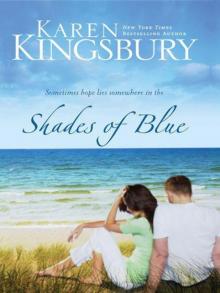 Shades of Blue
Shades of Blue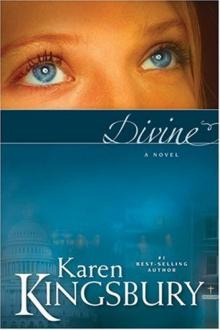 Divine
Divine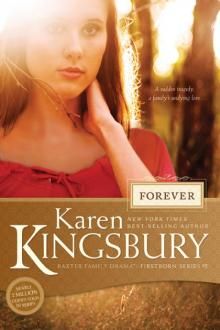 Forever
Forever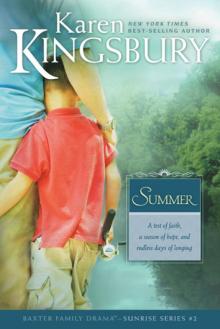 Summer
Summer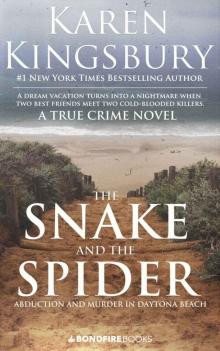 The Snake and the Spider
The Snake and the Spider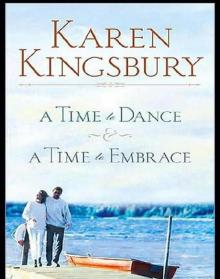 A Time to Dance
A Time to Dance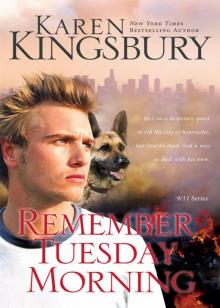 Remember Tuesday Morning
Remember Tuesday Morning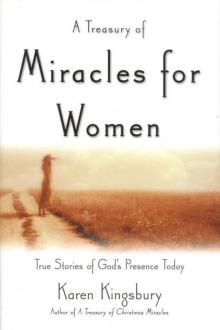 A Treasury of Miracles for Women
A Treasury of Miracles for Women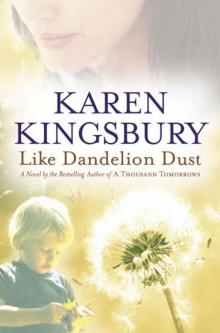 Like Dandelion Dust
Like Dandelion Dust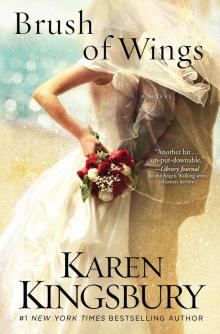 Brush of Wings
Brush of Wings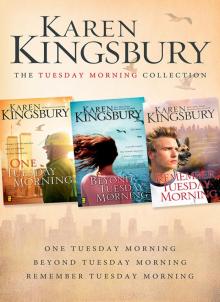 The Tuesday Morning Collection
The Tuesday Morning Collection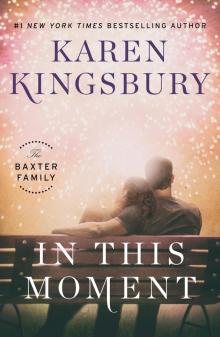 A Moment of Weakness
A Moment of Weakness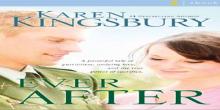 Ever After
Ever After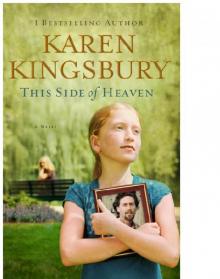 This Side of Heaven
This Side of Heaven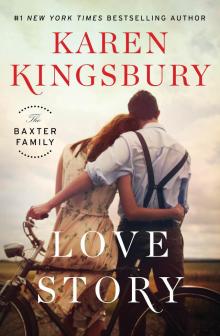 Unlocked: A Love Story
Unlocked: A Love Story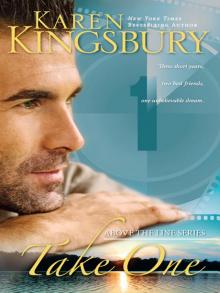 Take One
Take One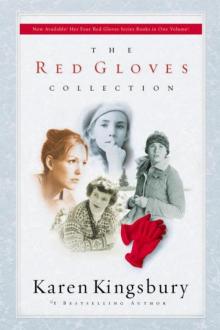 The Red Gloves Collection
The Red Gloves Collection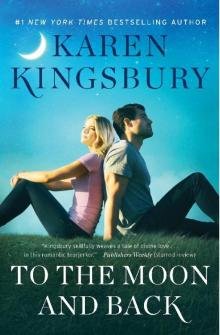 To the Moon and Back
To the Moon and Back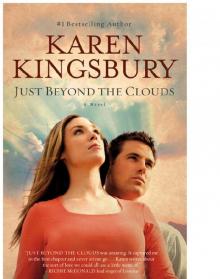 Just Beyond the Clouds
Just Beyond the Clouds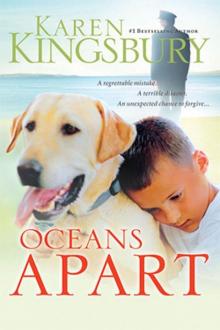 Oceans Apart
Oceans Apart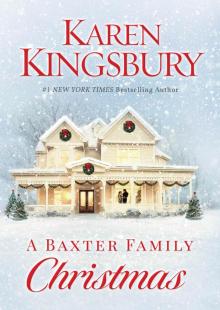 A Baxter Family Christmas
A Baxter Family Christmas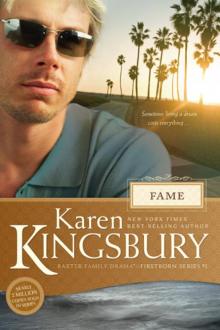 Fame
Fame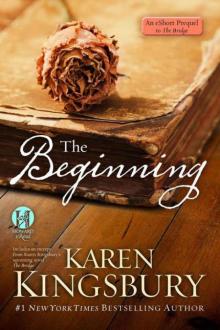 The Beginning
The Beginning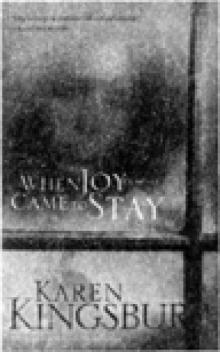 On Every Side
On Every Side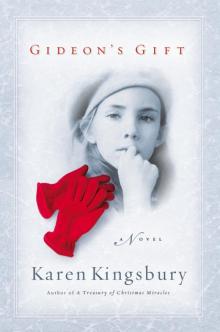 Gideon's Gift
Gideon's Gift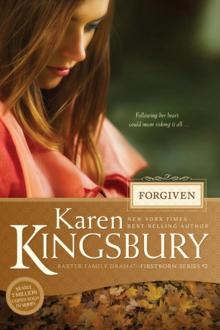 Forgiven
Forgiven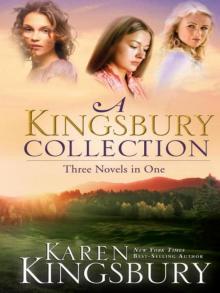 A Kingsbury Collection
A Kingsbury Collection Found
Found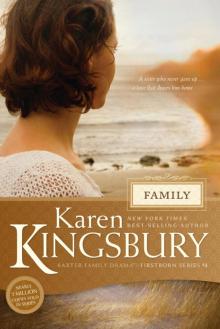 Family
Family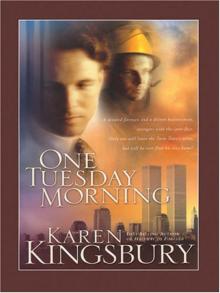 One Tuesday Morning
One Tuesday Morning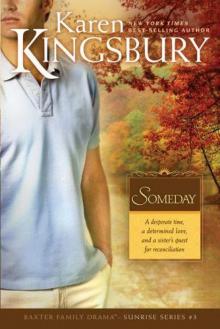 Someday
Someday Take Three
Take Three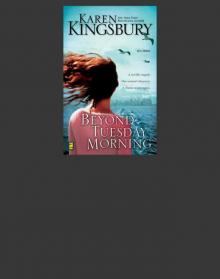 Beyond Tuesday Morning
Beyond Tuesday Morning Unlocked
Unlocked Take Four
Take Four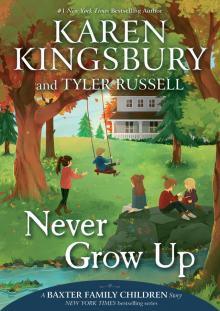 Never Grow Up
Never Grow Up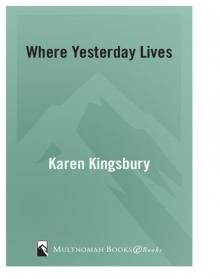 Where Yesterday Lives
Where Yesterday Lives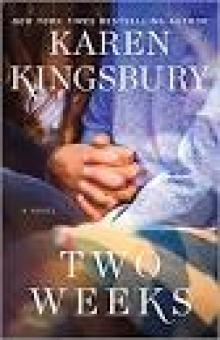 Two Weeks
Two Weeks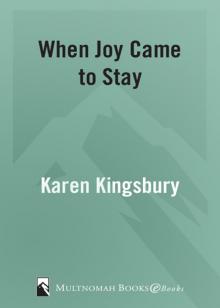 When Joy Came to Stay
When Joy Came to Stay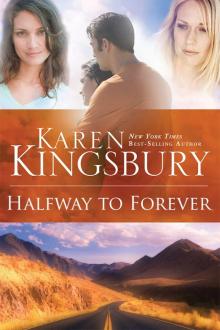 Halfway to Forever
Halfway to Forever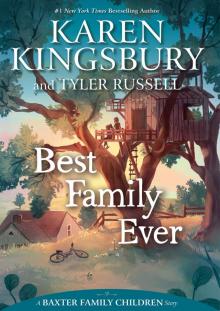 Best Family Ever
Best Family Ever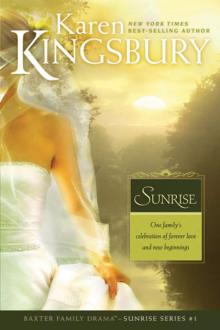 Sunrise
Sunrise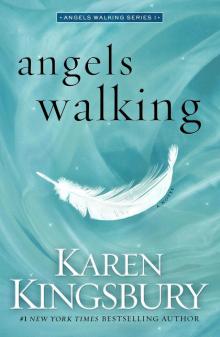 Angels Walking
Angels Walking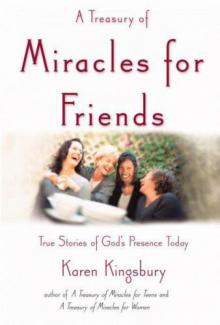 A Treasury of Miracles for Friends
A Treasury of Miracles for Friends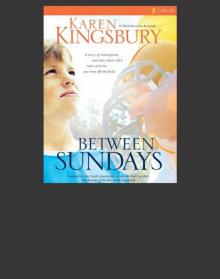 Between Sundays
Between Sundays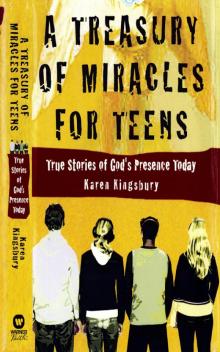 A Treasury of Miracles for Teens
A Treasury of Miracles for Teens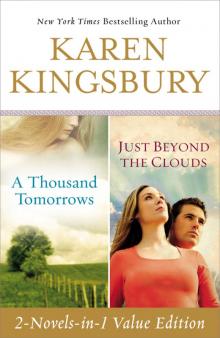 A Thousand Tomorrows / Just Beyond the Clouds
A Thousand Tomorrows / Just Beyond the Clouds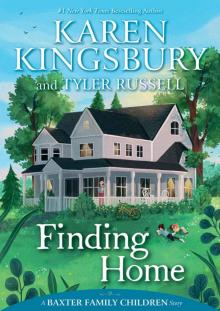 Finding Home (A Baxter Family Children Story Book 2)
Finding Home (A Baxter Family Children Story Book 2)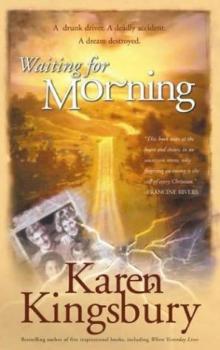 Waiting for Morning
Waiting for Morning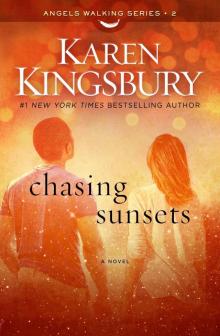 Chasing Sunsets
Chasing Sunsets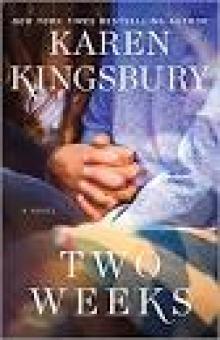 Two Weeks: A Novel (The Baxter Family)
Two Weeks: A Novel (The Baxter Family) Coming Home
Coming Home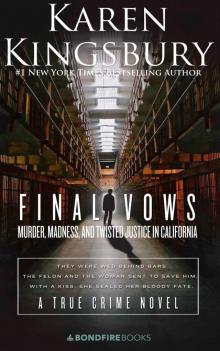 Final Vows
Final Vows Sunset
Sunset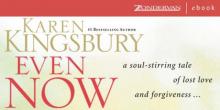 Even Now
Even Now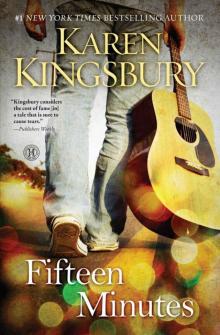 Fifteen Minutes: A Novel
Fifteen Minutes: A Novel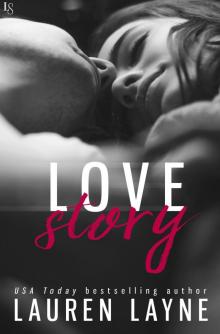 Love Story
Love Story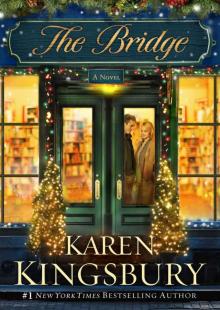 The Bridge: A Novel
The Bridge: A Novel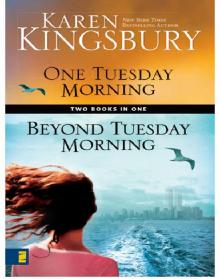 One Tuesday Morning & Beyond Tuesday Morning Compilation
One Tuesday Morning & Beyond Tuesday Morning Compilation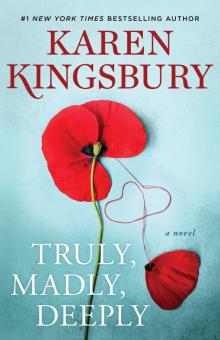 Truly, Madly, Deeply
Truly, Madly, Deeply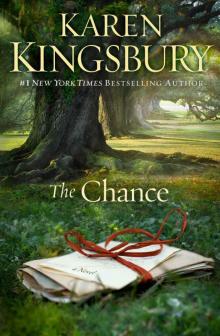 The Chance: A Novel
The Chance: A Novel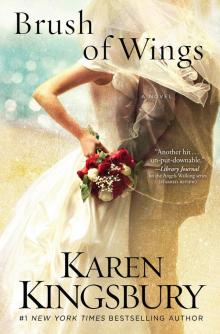 A Brush of Wings
A Brush of Wings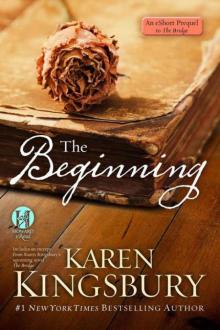 The Beginning: An eShort Prequel to the Bridge
The Beginning: An eShort Prequel to the Bridge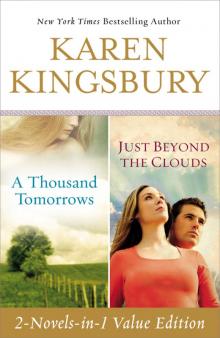 A Thousand Tomorrows & Just Beyond The Clouds Omnibus
A Thousand Tomorrows & Just Beyond The Clouds Omnibus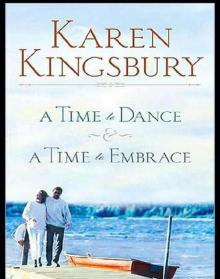 A Time to Dance/A Time to Embrace
A Time to Dance/A Time to Embrace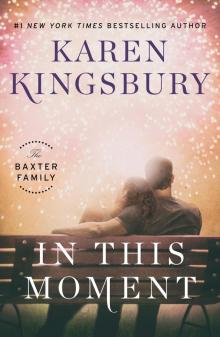 In This Moment
In This Moment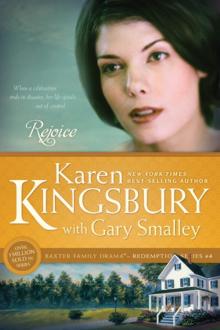 Rejoice
Rejoice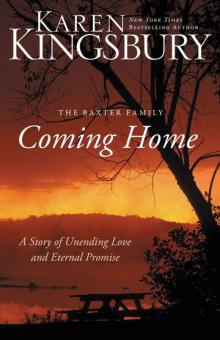 Coming Home: A Story of Undying Hope
Coming Home: A Story of Undying Hope